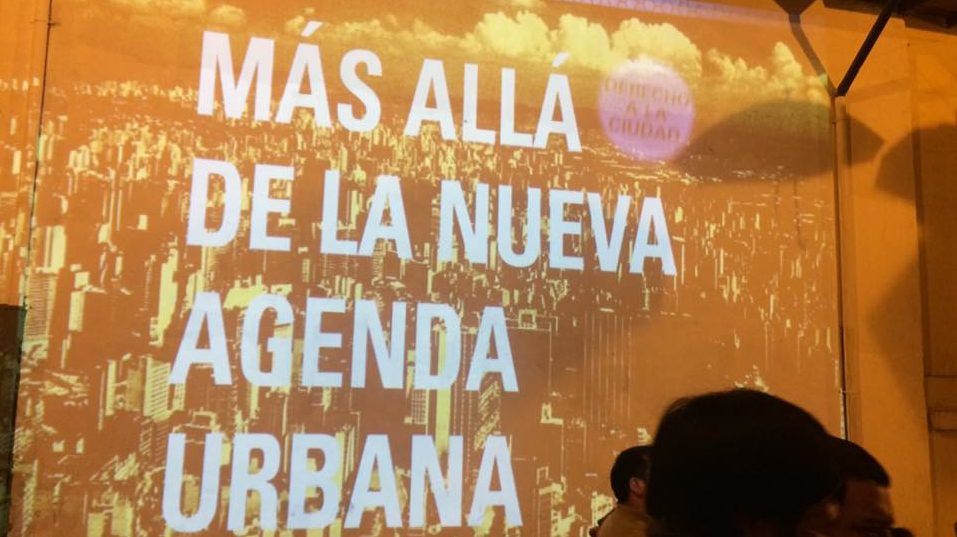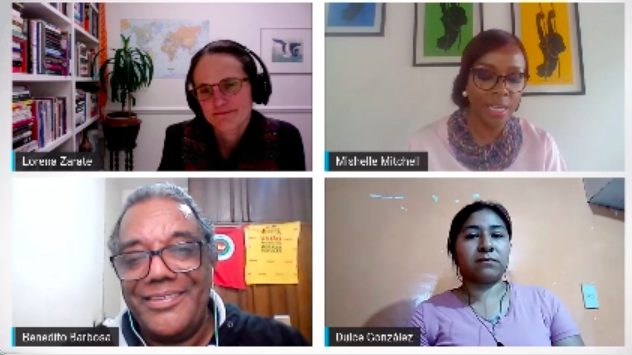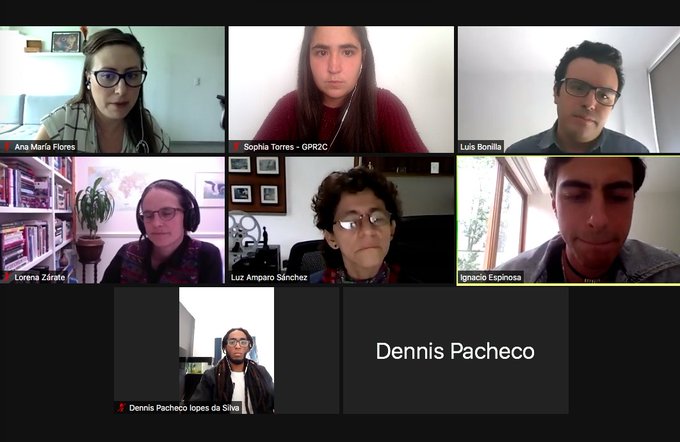
The fourth edition of the Latin American and the Caribbean Forum on Housing and Habitat, co-organized by Habitat for Humanity and Urban Housing Practitioners Hub (UHPH), took place from 17-21 May 2021. As in previous editions, the Global Platform for the Right to the City (GPR2C) actively participated in the events and discussions, under the central theme “Action for Housing and Settlements in the face of COVID19”, in order to bring the Right to the City perspective to advance the protection of the Right to Housing as a central axis in the recovery from the pandemic.
With more than 2000 registered participants and an average attendance of 800 people per day, including government representatives, representatives of international and regional organizations, academia, and civil society, the event was a great opportunity to continue weaving multi-stakeholder alliances for action from civil society and communities from the territory and in influencing public policies and regional and global agendas.
The GPR2C participation
In addition to attending and actively participating in the forum discussions, GPR2C and several of its members and allies in the region organized their own events or participated as panelists in debates. Some of the main debates and conclusions from these events are highlighted below.
On Monday 17 May, GPR2C co-organised with Cities Alliance and the UN-Habitat Regional Office for LAC the event “A 5 años de la Nueva Agenda Urbana: ¿Qué desafíos y oportunidades para el derecho a la ciudad en América Latina y el Caribe?” – “5 years after the New Urban Agenda: What challenges and opportunities for the right to the city in Latin America and the Caribbean?”, in Spanish. Based on the intense regional mobilization before Habitat III in 2016, which culminated in the Toluca declaration, the event sought to i) contribute to the construction of a regional alliance in view of the review process after five years of the signing of the New Urban Agenda, and ii) emphasize central issues for the region, such as the Right to the City, the social production of habitat and democratic and participatory management. The full video of the event is available at this link.
Tuesday 18 May was the occasion to present a collective interview with community leaders from GPR2C member and partner organizations in Mexico, Colombia, and Brazil to share different actions and initiatives carried out in their communities to respond to the impact of the COVID-19 pandemic from the perspective of the right to housing and the right to the city. Benedito (Dito) Barbosa from São Paulo (Brazil), presented the efforts of the Despejo Zero campaign in Brazil to stop evictions during the pandemic affecting more than 84,000 families; despite the approval of a bill by the Brazilian Chamber of Deputies, now being debated in the Senate. Dulce Maria Gonzalez, the member of the Mexico City Evictions Network, highlighted the struggle against forced evictions, with emphasis on the deepening vulnerabilities and exclusion experienced by affected families, in terms of health, work, and the possibility of living a dignified life. Finally, Luz Mila Hernández from Medellín (Colombia) shared the efforts of Corporación Región in Moravia for the Integral Improvement of Neighbourhoods under the leadership of the communities, highlighting the increase in poverty as a consequence of the pandemic and the urgent need for governments and society in general to make the voice of the communities heard.

Collective interview with community leaders and Lorena Zárate from the GPR2C support team.
In addition to joint advocacy efforts at local, regional, and international levels, the forum offered the opportunity to present and discuss research and training initiatives in the region. This is the case of the “Workbook #2 “The right to the city in the face of current challenges”, co-organized by CLACSO and the GPR2C to explore political and social perspectives to advance the realization of the right to the city in Latin America from the perspective of urban inequalities. The Forum presented the occasion for the pre-launch of the booklet, with the participation of some of the contributors to the initiative, such as Ignacio Espinosa (Ecuador, article on the Right to the City and sexual dissidence in the context of the COVID-19 pandemic), Luz Amparo Medina (Colombia, article on the resistance of the youth of the Las Lomas community in Medellín) and Dennis Pacheco (Brazil, article on the repression and violence against the black population in São Paulo). The full video of the event is available at this link and the official launch of the booklet will take place soon.

Presentación del Cuaderno de Trabajo #2 “El derecho a la ciudad frente a los desafíos actuales”
Finally, the Forum was the moment to follow up and take stock of important initiatives developed throughout 2020 and in the first months of 2021 to address the immediate challenges presented by the COVID-19 pandemic in terms of housing rights in the region. In that case, two initiatives in particular can be highlighted:
(i) The Housing Labs (LAVs), promoted by Cities Alliance, UHPH and Habitat for Humanity, as spaces for debate between government authorities, civil society and academia on immediate crisis response measures and long-term policies on issues such as housing policy, metropolitan governance and migration. The session is available at this link.
ii) The Decalogue for the Integral Improvement of Neighbourhoods, an initiative resulting from the alliance between civil society organisations, social movements, universities, research centres, international and regional organisations and networks in defence of the development of a renewed programme of integral improvement of healthy neighbourhoods to respond to immediate needs and to contribute to a long-term post-pandemic recovery based on the well-being of the population, the realisation of their rights and respect for the environment.




